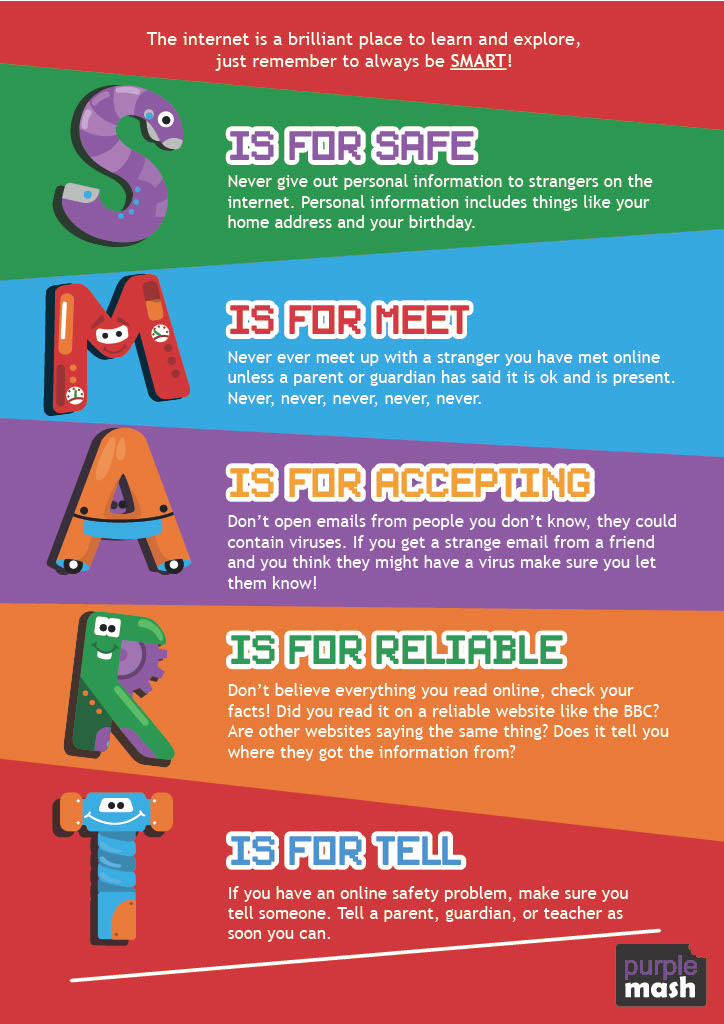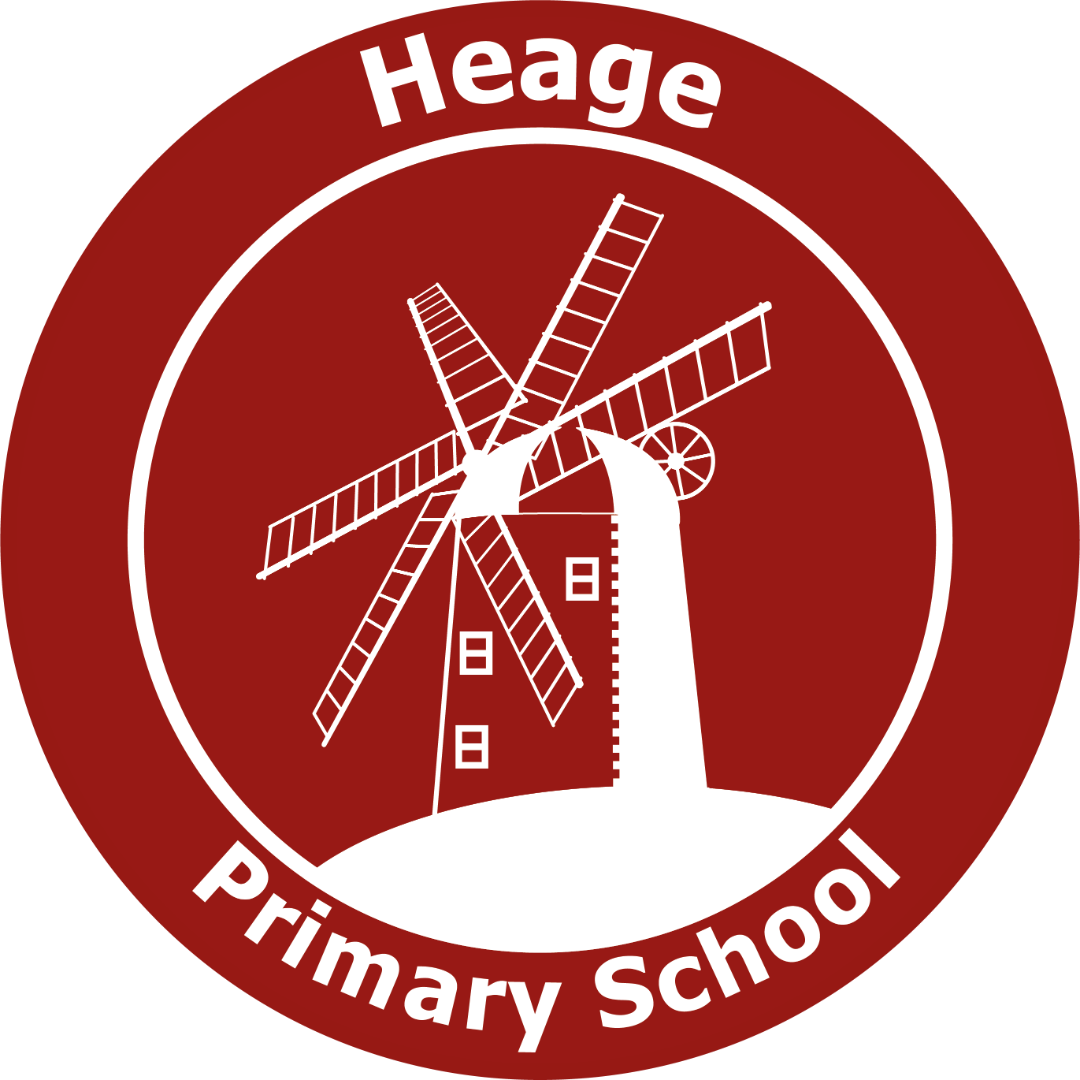Online Safety
Keeping Children Safe Online
Children at Heage Primary School use the Internet on a regular basis as part of their learning. In school, we have regular e-safety activities and focused lessons (taught through our Scheme of work for Computing Purple Mash) to not only educate pupils on the importance of keeping themselves safe online, but what to do if they find themselves in a situation that makes them feel uncomfortable. We must work together to ensure our children are safe and ensure they always behave appropriately.
The internet is a wonderful tool and is widely available with the increased use of smartphones and tablets. At home, it is becoming increasingly difficult to supervise children whilst they are using the internet. We can only be successful in keeping children safe online if we work with parents to ensure the E-Safety message is consistent. Therefore, it is important that the appropriate parental controls are set through your internet service provider (ISP).
It’s essential to be realistic - banning the internet or technology will not work, and it often makes a child less likely to report a problem. Education around safe use is essential.
Click on the link below to watch a video about how to do this with the main ISPs:
http://www.saferinternet.org.uk/advice-and-resources/parents-and-carers/parental-controls
Further information on Privacy Settings and Safe Searching can be found here: https://www.internetmatters.org/parental-controls/interactive-guide/
E-Safety
E-Safety is an important part of keeping children safe at Heage Primary School. We have extensive security measures in place in school, which are monitored both internally and externally, to help safeguard pupils from potential dangers or unsuitable material. Any E-Safety incidents are recorded and managed in accordance with E-Safety Policy.
Online Safety at Home
At home, sometimes children can be given unsupervised access to the Internet. This, potentially, allows them to access all kinds of society (both good and bad) and bring them virtually into their homes.
Here are some tips and useful links to help you to keep your children safe online:
- Facebook and other social media sites - Many of these site have a minimum age limit of 13, so pupils should NOT be using them. They do not offer the same levels of protection as other social media sites, allowing children to communicate with anyone.
- Keep your computer in a shared area - Talk to your child about what they are doing online and, if possible set up your computer in a shared area at home so that you can all share in the wonderful sites that are available online.
- Privacy setting - Ensure privacy settings are regularly checked and updated to avoid exposure to the wider public, i.e. only invited friends.
Some links to more online safety information:
- Think U know - containing internet safety advice for those aged from 5 to 16, along with parents and teachers, this site is produced be CEOP (the Child Exploitation and Online Protection Centre).
- PREVENT - Practical advice
- Vodafone Parents - Vodafone have lots of fantastic practical advice for parents. You can also read their 'Digital Parenting' magazine.
- Internet Safety Zone - Look in the 'Under 13s' section for useful safety advice and information.
- Kidsmart - An award-winning internet safety programme for children.
- Know It all - lots of useful advice for keeping yourselves and your children safe on the Internet.
- Facebook Privacy Controls
- You Tube
- XBox 360
- Windows 7
- Pegi
- Net Aware
- NSPCC

